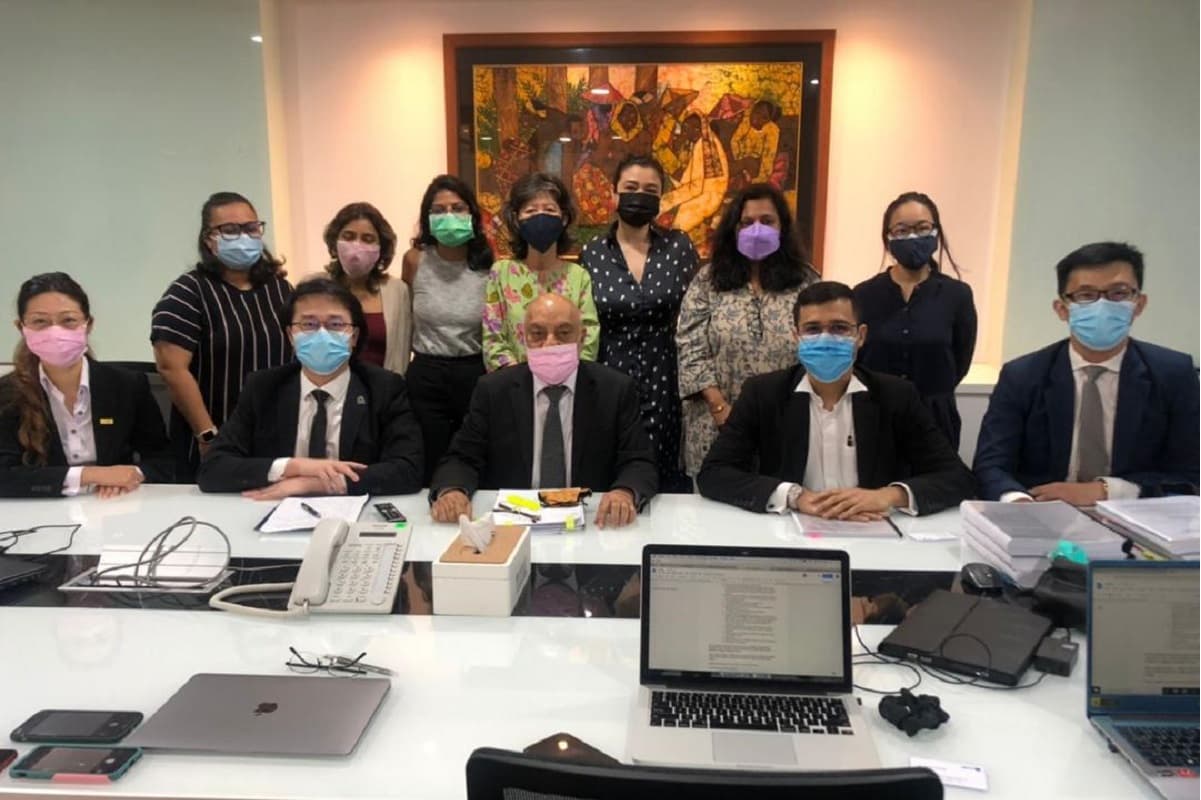
KUALA LUMPUR (Sept 9): In a landmark decision, the High Court today ruled that Article 8(2) on equality that prohibits discrimination based on gender would also mean that the word "father" in the Federal Constitution under the Second Schedule, Part II, Section 1(b) should also include mothers and that their children are entitled to citizenship by operation of the law.
The decision was made by Justice Datuk Akhtar Tahir, in the case brought by Malaysian mothers whose children are born overseas and not able to get citizenship here.
In a statement released today, Family Frontiers hailed the decision by the court in affirming the right of Malaysian mothers to confer citizenship by operation of law on their children born abroad on an equal basis with Malaysian men as momentous.
“The court ruled that Article 14(1)(b) of the Federal Constitution together with the Second Schedule, Part II, Section 1(b) of the constitution, pertaining to citizenship rights, must be read in harmony with Article 8(2) of the Federal Constitution, which prohibits discrimination on the basis of gender.
“Justice Akhtar announced that the word ‘father’ must therefore be read to include mothers and that their children are entitled to citizenship by operation of law,” the NGO said in a statement.
It added that the High Court emphasised that the courts are empowered to interpret the law to uphold the spirit of the Federal Constitution and ensure justice.
Justice Akhtar added that the case does not seek to change policy but rather to apply existing law in a way that will find a remedy for the grievance of the plaintiffs.
“The grievances of the plaintiffs are real… the discrimination is apparent,” the judge said in reading out his decision which was conducted online.
Family Frontiers along with six other Malaysian mothers filed the judicial challenge and named the Malaysian government as respondents, in a bid to have the court declare that children born overseas from Malaysian mothers and foreign fathers are entitled to receive Malaysian citizenship.
Article 8(2) stipulates that there shall be no discrimination against citizens on the ground only of religion, race, descent, place of birth or gender in any law or in the appointment to any office or employment under a public authority while Article 14 concerns citizenship by operation of the law.
Hugely anticipated decision
Datuk Dr Gurdial Singh Nijar also described this as a momentous decision which was much awaited by Malaysian mothers for a decade or so.
“It has disrupted family structures where a child is denied citizenship. The judge said that Malaysian mothers had proved they fulfilled the criteria of loyalty, allegiance and attachment to this country,” he said.
The senior counsel also said that the court’s decision fulfils the intention of the Parliament when they amended the law (Article 8) in 2001 to guarantee that there will be no discrimination against women and it also preserves the family structure so that children born overseas to Malaysian mothers are citizens by operation of law.
Another lawyer Joshua Andran said this is an illuminating and welcomed decision in the fight against discrimination.
“It is also one which is consistent with the government’s amendment to Article 8 of the constitution to prohibit discrimination based on gender back in 2001. Mothers, and women as a whole, have been owed this for nearly 20 years, and today they have been honoured not just by words and gestures but in pragmatic terms.
“In this day and age, discrimination against women, especially in such a fundamental issue such as citizenship, cannot be allowed to continue and this decision represents Malaysia’s effort to be counted amongst those who promote true equality between Malaysian men and women,” he added.
Another lawyer Abraham Au said the court has embarked on yet another massive breakthrough in terms of the interpretation of the constitution.
“The last one being in the M Indira Gandhi case, where the court has looked beyond the expressed wording of a particular law to fulfil the aspirations and changing ideals of today’s society as well as to meet the criteria that all citizens, regardless of gender, must be treated equally,” he added.
Family Frontiers president Suriani Kempe said they are so thankful for this outcome.
“This is a huge relief for affected mothers because this judgment applies not just to the mothers directly involved in the case as plaintiffs, but to all Malaysian mothers who are similarly affected. This judgement recognises Malaysian women’s equality, and marks one step forward to a more egalitarian and just Malaysia,” she said.
“Malaysian women have been waiting for years, and the day has finally arrived. Justice has been served,” said Adlyn Adam Teoh, a Malaysian mother and one of the plaintiffs in the case.
Myra Eliza Mohd Danii, another plaintiff in the case, said they have been applying for her daughter’s citizenship since she was five months old.
“We thank God for the court’s decision today. I am so happy and I cannot wait to tell her that she is also Malaysian, just like her brother,” Myra said.
Family Frontiers had said Malaysian mothers have faced family separation, along with obstacles to accessing residency, education, healthcare, and social services for their children and that today's ruling is a monumental step in the direction of gender equality.
The citizenship applies to children born overseas to Malaysian fathers but not, as the present case highlights, to women.
Earlier this year, Justice Akhtar dismissed the government's application to strike out the originating summons, and the Court of Appeal had last month upheld Justice Akhtar's decision and directed the case to proceed.